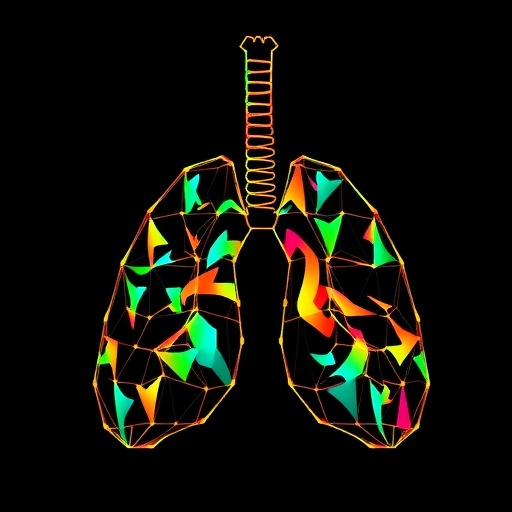This article explores a groundbreaking study undertaken by a team of researchers led by Huang et al., focusing on the intricate genetics of non-classical congenital adrenal hyperplasia (NCAH) within a specific demographic: Chinese patients suffering from polycystic ovarian syndrome (PCOS). The research highlights an innovative approach to genetic analysis through long-read sequencing technology, which allows for a more comprehensive examination of genomic variations associated with hormone dysregulation and reproductive health.
The study’s significance stems from the fact that NCAH, a condition resulting from a deficiency in enzymes critical for steroidogenesis, often goes underdiagnosed, especially in women. Symptoms can include menstrual irregularities, hirsutism, and infertility, making it a pressing issue in reproductive health. Identifying the carrier frequency of this condition in women already grappling with PCOS could significantly influence treatment strategies and patient outcomes.
Central to this research is the detailed analysis of the prevalence of NCAH in a cohort of Chinese women with PCOS. The utilization of long-read sequencing technology marks a pivotal evolution in genomic studies, allowing researchers to probe deeper into the structural complexities of genes responsible for steroid hormone production. Unlike traditional short-read sequencing, which often faces challenges in resolving repetitive regions of the genome, long-read sequencing enables a clearer view of gene variations that may contribute to NCAH.
The authors meticulously gathered genetic samples from women diagnosed with PCOS and applied long-read sequencing to unravel the genetic underpinnings of these patients. Initial findings suggested that a considerable proportion of participants carried mutations linked to NCAH. This raises critical awareness regarding the genetic landscape associated with hormone imbalances, which are often exacerbated by metabolic issues prevalent in PCOS.
Furthermore, this groundbreaking study demonstrated a link between NCAH and metabolic dysfunction in PCOS patients, highlighting the necessity for an integrated approach to diagnosis. The elevated prevalence of genetic mutations associated with NCAH might contribute to the higher incidence of metabolic syndrome in women with PCOS, pointing to an interconnected network of hormonal, genetic, and metabolic factors that warrant further exploration.
The findings reveal an intricate web of implications not only for individual health care but for population health strategies. Understanding the frequency of carriers of NCAH can aid in designing preventive health initiatives and tailored treatment plans, optimizing patient management strategies based on genetic predisposition. This generational shift in the understanding of hereditary disorders presents an invaluable opportunity for advancements in personalized medicine.
As the study delves deeper into the implications of genetic counseling, it urges clinicians to consider the genetic status of their patients more carefully. The integration of genetic screening in standard practice for women of reproductive age, particularly those diagnosed with PCOS, could be transformative. Emphasizing this aspect may lead to informed reproductive choices and personalized medical care, potentially reducing the burden of infertility linked to undiagnosed NCAH.
Moreover, the research underscores the intersection of genetics and endocrinology. The hormonal imbalances often seen in PCOS can be better understood through the lens of underlying genetic causes, refining our comprehension of how such conditions interrelate. This holistic understanding can evolve the realms of endocrine and reproductive health, fostering a more nuanced perspective on the treatment and management of these complex disorders.
The study also presents opportunities for future research avenues, paving the way for deeper inquiries into the genetic and environmental interactions at play in both PCOS and NCAH. Given the implications of this research, future cohorts might examine the genetic profiles of varied populations, further elucidating the prevalence of these conditions globally.
As discussions surrounding women’s health become increasingly vital in scientific discourse, research such as this lays the groundwork for not only advancing our understanding of specific conditions but also for advocating for broader health policies that prioritize genetic awareness and screening. It highlights the importance of acknowledging that genetic factors are often intertwined with broader societal health issues, necessitating comprehensive and multifaceted strategies in healthcare.
In conclusion, Huang et al.’s study serves as a clarion call for the need to integrate genetic analysis into routine medical practice for women suffering from PCOS. By embracing the complexities of genetic predisposition to conditions like NCAH, the medical community stands to improve individual outcomes significantly, advancing the frontier of reproductive health care.
Subject of Research: Non-classical congenital adrenal hyperplasia prevalence and carrier frequency in Chinese polycystic ovarian syndrome patients.
Article Title: Long-read sequencing analysis of non-classical congenital adrenal hyperplasia prevalence and carrier frequency in Chinese polycystic ovarian syndrome patients.
Article References:
Huang, Y., Jiang, H., Zhu, X. et al. Long-read sequencing analysis of non-classical congenital adrenal hyperplasia prevalence and carrier frequency in Chinese polycystic ovarian syndrome patients. J Ovarian Res 18, 252 (2025). https://doi.org/10.1186/s13048-025-01824-x
Image Credits: AI Generated
DOI: https://doi.org/10.1186/s13048-025-01824-x
Keywords: Genetics, Congenital Adrenal Hyperplasia, Polycystic Ovarian Syndrome, Long-read Sequencing, Carrier Frequency, Women’s Health.




